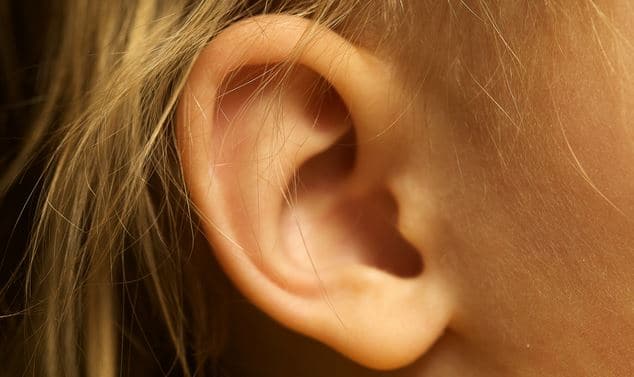Editor’s Note: While the HHTM editorial team takes the week off for the holidays, we hope you enjoy this post. Originally published on July 3, 2018, this post received more views than any other article at the Audiology Condition in 2018.
Approximately 15 percent of American adults over the age of 18 experience some level of hearing loss today and nearly three-quarters of those adults could benefit from using hearing aids.
While it’s easy to blame issues like chronic noise exposure for the number of people experiencing hearing loss, it’s important to understand that there are a number of other things that can bring about hearing impairment as well. For example, there are a number of diseases — many of which seemingly have nothing to do with the ears themselves — that contribute to hearing loss.
Read on to learn about four diseases that can increase your risk of developing hearing loss.
Chronic Kidney Disease
Chronic kidney disease involves a gradual loss of kidney function. Approximately 14 percent of the general population suffers from kidney disease. One study found that those who have kidney disease have a 43 percent greater risk of experiencing hearing loss.
Researchers believe that the link between kidney disease and hearing loss has to do with an accumulation of toxins that end up damaging the nerves throughout the body, including those associated with proper hearing function. When the kidneys don’t function properly, toxins cannot be eliminated efficiently and can build up in the bloodstream.
Because of the strong connection between these two conditions, it’s important for people who know they suffer from chronic kidney disease to take steps to protect and preserve their hearing. This means getting hearing assessments earlier and more regularly.
Diabetes
Hearing loss is twice as common among people with diabetes as it is among those who don’t have the disease. The rate of hearing loss is also 30 percent higher among adults who are pre-diabetic. It’s not clear exactly what the connection is between diabetes and hearing loss. However, many researchers believe that chronically elevated blood sugar is the culprit.
Their hypothesis is that high blood sugar levels contribute to nerve damage and hinders the function of the nerves and small blood vessels in the inner ear (similar to the way kidney damage can contribute to hearing loss).
People with diabetes should take the same precautions as people with chronic kidney disease to protect and preserve their hearing — get regular exams and get fitted for hearing aids early.
High Blood Pressure
High blood pressure — also known as hypertension — is another common disease (it affects nearly 75 million American adults) that can contribute to hearing loss. To understand how blood pressure affects hearing, it’s important to understand what blood pressure actually is.
Blood pressure is a measurement of the force of blood against the veins and arteries. It consists of two numbers. The first number, your systolic pressure, indicates the pressure exerted when your heart pushes blood out, and the second number, your diastolic pressure, indicates the pressure when the heart is relaxed and not pumping blood.
If your systolic pressure is greater than 120 and your diastolic is greater than 80, you are considered to have high blood pressure. High blood pressure can cause damage to the lining of your arteries. Over time, fatty plaque can build up in these damaged areas and diminish or completely halt blood flow.
How are high blood pressure and hearing loss related? High blood pressure leads to damage to the blood vessels and arteries in all parts of the body, including the ears. Research has found that when blood pressure increases, hearing ability goes down.
Mumps
Mumps is a viral infection that causes inflammation of the salivary glands. Mumps is a relatively rare illness these days, thanks to the vaccination that children are required to get before they attend public school. But, it can still happen in unvaccinated individuals, and one of the side effects is hearing loss.
The mumps virus has been shown to cause damage to the tiny sensory hair cells found in the inner ear. Once damaged hair cells cannot be repaired, or restored, which results in permanent hearing loss.
![]() Joe Fleming is the President of ViveHealth.com. Passionate about healthy lifestyles and living a full life, he enjoys sharing and expressing these interests through his writing. With a goal to inspire others and fight ageism, Joe writes to help people of all backgrounds and ages overcome life’s challenges. His work ranges from articles on wellness, holistic health and aging to social narratives, motivational pieces and news stories. For Joe, helping others is vital. He can be contacted at [email protected].
Joe Fleming is the President of ViveHealth.com. Passionate about healthy lifestyles and living a full life, he enjoys sharing and expressing these interests through his writing. With a goal to inspire others and fight ageism, Joe writes to help people of all backgrounds and ages overcome life’s challenges. His work ranges from articles on wellness, holistic health and aging to social narratives, motivational pieces and news stories. For Joe, helping others is vital. He can be contacted at [email protected].








Hi Joe,
Thanks for the informative blog on hearing aids and hearing loss. Beautifully written blog and well explained about hearing aids. Keep posting more about whistling hearing aids, discomfort or not hearing clearly.
Thanks again